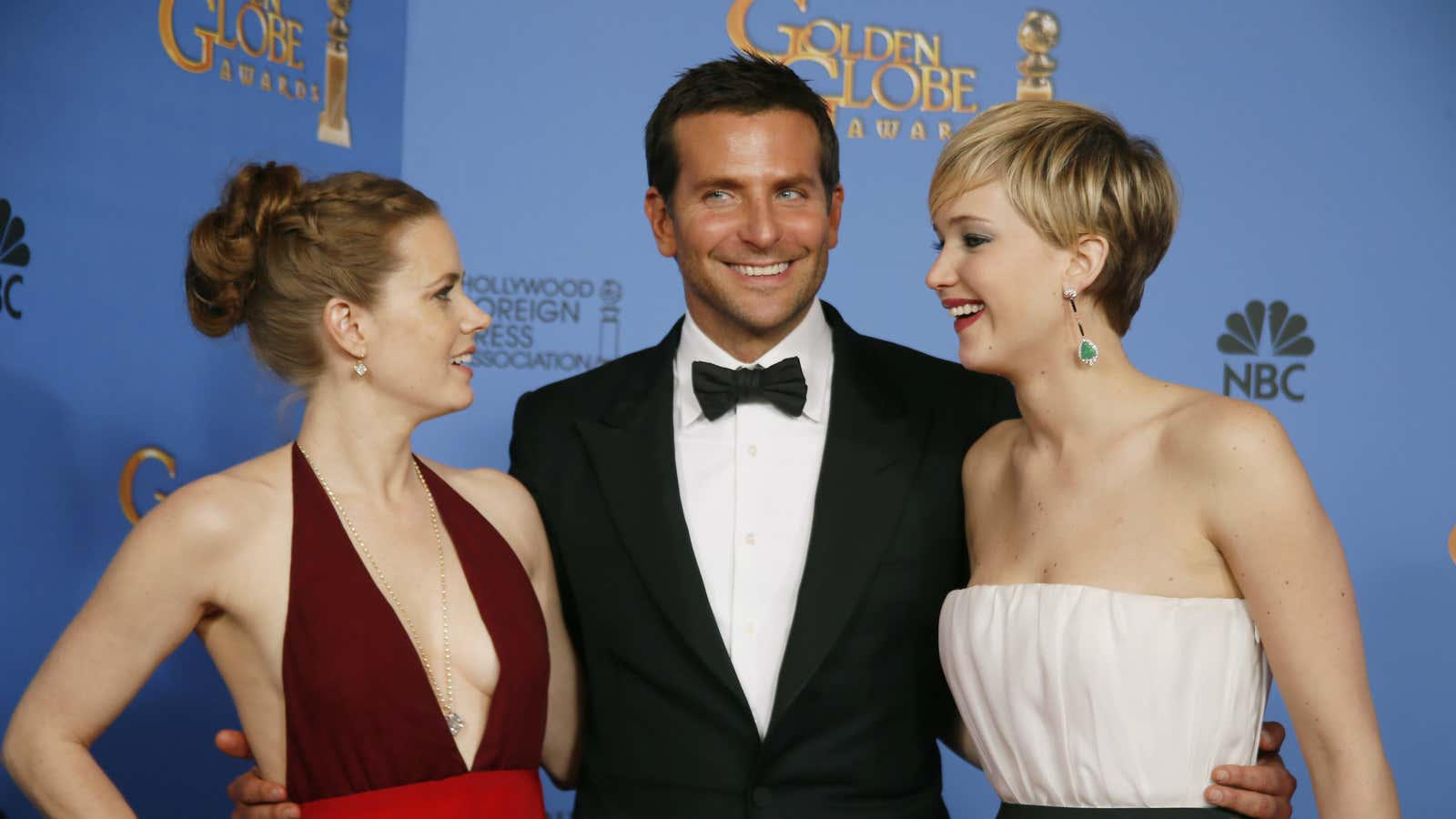Last week, Bradley Cooper announced he was taking the gender pay gap into his own hands. Leaked Sony emails showed Cooper has previously benefited from this insidious form of sexism, as he was paid significantly more than his female co-stars Amy Adams and Jennifer Lawrence in the film American Hustle.
Following on from Lawrence’s essay on her frustration at being paid less than her male colleagues, Cooper announced that he would negotiate alongside his female co-stars from now on.
“Usually you don’t talk about the financial stuff, you have people,” he told Reuters. “But you know what? It’s time to start doing that.”
Cooper’s decision is in fact supported by strong economic reasoning, as open salary negotiations and pay transparency are key ways to reduce the gap in salaries paid to men and women.
“Hollywood may seem trivial, but I think it’s a window into the gender gap,” Monique Morrissey, an economist at the Economic Policy Institute, tells Quartz. “It shows that even at the very top, among people who are high earners, there’s still a tendency for men to pay other men more.”
But while Cooper can raise awareness of the issue, one man’s actions will only have a limited effect. Morrissey says we need to be far more “systematic” about disclosing our pay.
Mandated salary disclosure is not widespread in the US, though unions and non-profits are required to reveal salary information (non-profits only do so for directors, officers, and key employees, though this can be everyone at smaller non-profits). Morrissey says this transparency makes it far more difficult to systematically pay men more than women.
“Groups that tend to be discriminated against in the workforce do better when there’s less secrecy,” says Morrissey. “If you were hired at the same time as somebody else, you’re doing the same job, and you know that you’re paid less than them, you’re going to go ask for a raise.”
Last year, President Obama issued an executive order mandating that federal contractors must lift all rules that prohibit employees from talking about their pay. But this, says Morrissey, is something of a “no brainer.”
“I’m glad that it’s going on but it’s a very low bar. We believe in freedom of speech and most Americans would and should be shocked to know that employers can try and prevent them from talking to co-workers about salary,” she says.
In the UK, companies with more than 250 employees were recently told they’d have to start publishing the salary gap between average male earnings and average female earnings.
But if more governments don’t introduce legislative action, then there’s another path to closing the gender pay gap: More men will have to be like Bradley Cooper.
